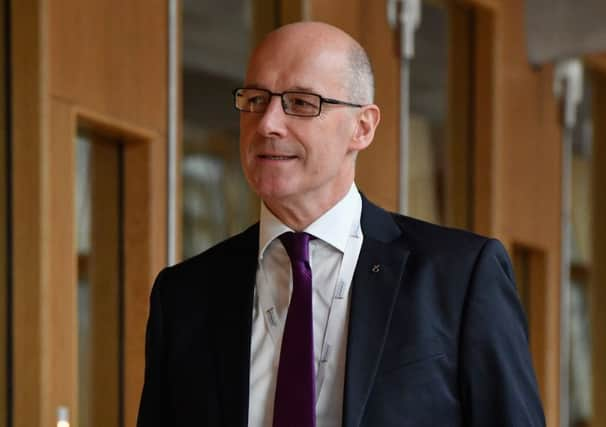Named Person opponents angry over legal advice '˜secrecy'


Opponents of the scheme are attempting to use Freedom of Information legislation to obtain the legal advice taken by the government on the move to give every child in Scotland a named guardian. The government is blocking the attempt on the grounds of client confidentiality.
Last week Education Secretary John Swinney was forced to delay the introduction of the scheme following a judgment by the Supreme Court.
Advertisement
Hide AdAdvertisement
Hide AdIn July, a unanimous judgment by five judges ruled that the scheme’s proposal to share information about children across agencies was a breach of Article 8 of the European Convention of Human Rights.
The legislation aims to give every child in Scotland a single point of contact who would look after their welfare. One of the controversial aspects of it has been its proposal for agencies to share information about children without their parents’ knowledge.
Prior to the case, legal experts including the Law Society of Scotland had warned the scheme could run into difficulties.
The Scottish Government’s legal advice is being sought by Lesley Scott, the Scottish spokeswoman for the TYMES (The Young ME Sufferers) Trust and a campaigner against Named Persons.
The Scottish Government has responded to her saying: “We recognise that there is some public interest in release as part of open and transparent government and to inform public debate.
“However, this is outweighed by the strong public interest in maintaining the right to confidentiality of communications between legal advisers and clients to ensure that ministers and officials are able to receive legal advice in confidence, like any other public or private organisation.”
Yesterday Scott said: “I think it is quite astonishing to receive this answer. The government seems to think it has a right to confidentiality and is refusing to share information when the scheme they are advocating encourages the sharing of information about families.”
The court ruling saw Swinney delay the legislation’s introduction until August next year. In the meantime, the Scottish Government is to undertake an “intense” three-month consultation on how to make the scheme comply with European human rights law.
Advertisement
Hide AdAdvertisement
Hide AdUnder the scheme, the Named Person role will be undertaken by head-teachers and health visitors.
Teachers have expressed concern about the extra workload that the scheme will impose. Health visitors have also warned that there are not enough qualified staff to implement the scheme.
Yesterday one of Scotland’s leading health visitors’ unions warned that the Scottish Government has to keep its promises on fair funding and extra staff if it wants the Named Person scheme to be a success.
The warning was issued by the Community Practitioners and Health Visitors Association, part of the Unite union. Gavin Fergie, Unite lead professional officer for health in Scotland, said: “We have engaged with the Named Person scheme – but promises made about funding and increasing the number of health visitors practising in Scotland have not been delivered. Without full and protected funding we do not believe that enough new health visitors will be recruited and retained.”
In 2014, the Scottish Government announced it was to invest £40 million in recruiting 500 health visitors by 2017-18. But the union says that will barely cover the number of people retiring and leaving the profession.
In answer to these concerns the public health minister, Aileen Campbell, said: “Under this government community nursing has increased by almost a third. We recognise that health visitors play a vital role in the health and wellbeing of children and families, and they are at the core of delivering the new enhanced universal service. In the past two years we have funded over 380 nurses to train as health visitors.”